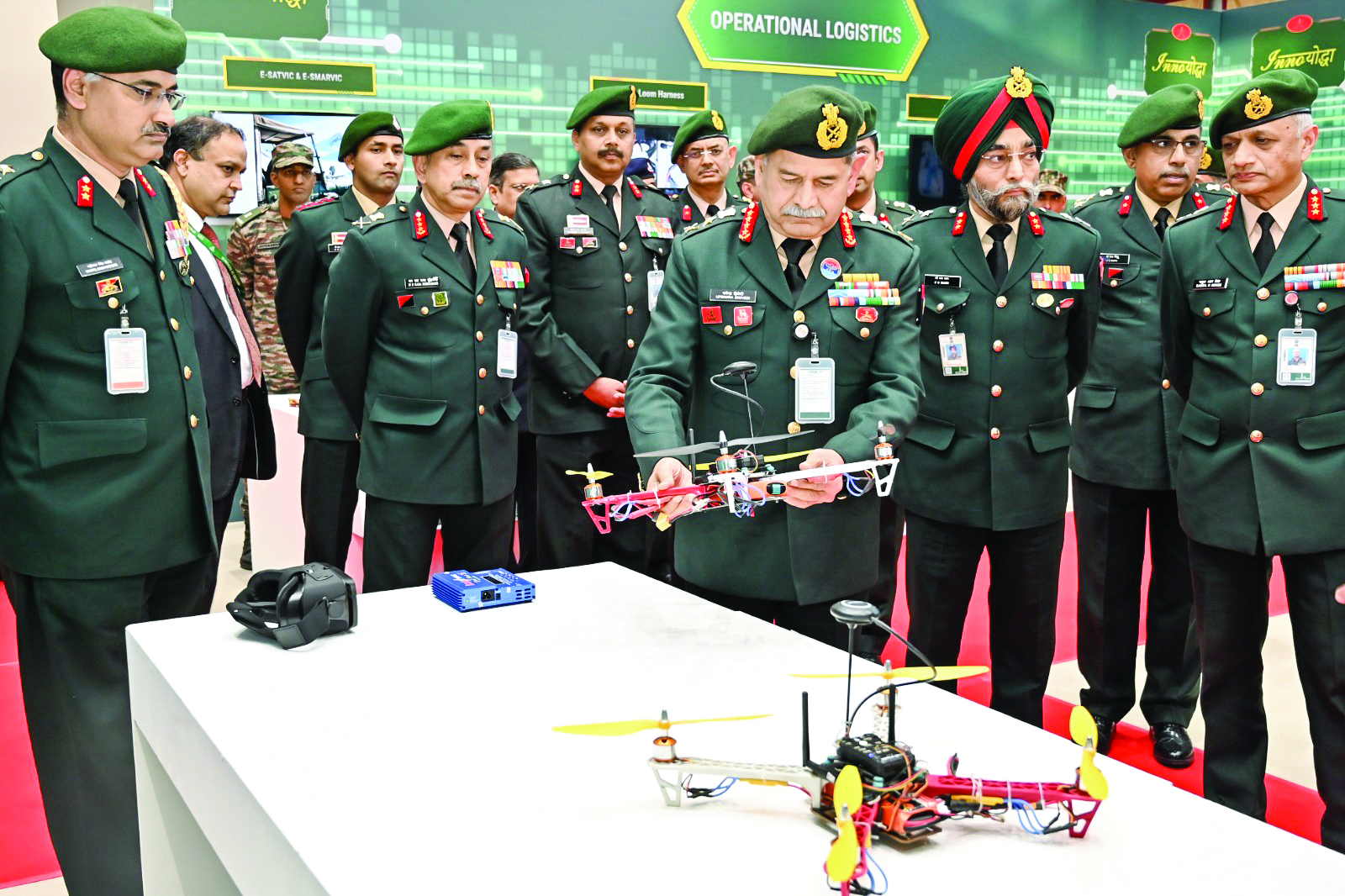The event highlighted 75 innovations, fostering advancements in technology, operational efficiency, and troop welfare.
New Delhi: Chief of the Army Staff, General Upendra Dwivedi, on Thursday said, “Recent conflicts have shown that innovation is not just a word, it is a mindset. It is the spark that drives progress and shapes the future.”
The Army Chief was speaking at the Idea & Innovation Competition and Seminar of the Indian Army, ‘Inno-Yoddha 2024-25’ at Manekshaw Centre, New Delhi. Inno-Yoddha is an annual event conducted by the Indian Army. It aims to identify in-house innovations for addressing capability gaps, enhancing operational, logistics, and training capabilities, and increasing operational effectiveness. The operational challenges faced by the Indian Army are varied, aggravated by the vagaries of terrain, weather and adversarial threats. The Army promotes in-house innovations, that are grounded in the challenges experienced by the troops in the field. Hence, the solutions are driven by the challenges they face in their respective domains.
This year, a total of 75 innovations from diverse domains across the Indian Army were selected, starting from the unit level to the formation level, and ultimately reviewed by the respective Command Headquarters. Out of these 75 Innovations, the top 22 were displayed during the event and felicitated by the Army Chief. These innovations will be taken forward for production under the aegis of Army Design Bureau to fulfil the requirements of field formations.
Amongst the 22 innovations that were displayed at the event, the “Phoenix Foot” attracted a lot of attention. It is an artificial foot, a crucial component of prosthetics to rehabilitate amputees. It has been designed using indigenous materials and features a single-axis load and balance shaft, along with a sagittal pin with helical limit springs as its core components. Initial trials with amputees of various ages have yielded positive feedback regarding its comfort and functionality.
Also showcased at the event was the Baaz Attack Drone, an advanced multi-weapon platform. It has a range of up to 20 kilometers and can carry payloads of more than 50 kilograms. The drone can be operated in autonomous as well as manual mode using a hand-held controller. It can also be employed effectively in counter-insurgency and counter- terrorism operations for surveillance and destruction of hideouts. Additionally, the Baaz Attack Drone can also be employed as a logistics drone for replenishment of supplies at forward areas.
Another drone, the TiVRA Attack System, was featured at the event. It is an advanced drone system designed for reconnaissance and precision targeting. The system comprises of two drones- the first performs reconnaissance missions to detect targets and transmits the target coordinates to the second drone. The second drone autonomously navigates to the target location to carry out the assigned mission.
Other displayed items included the Advanced Flood Monitoring System, Low-Cost Fabrication Drone, Kharga Drone, TiVRA Attack System, Rapid Construction Rubik PD, and others. It is pertinent to note that over the past four years, the event has fostered significant innovations, which included the filing of 26 IPRs and the successful completion of 21 innovations.

